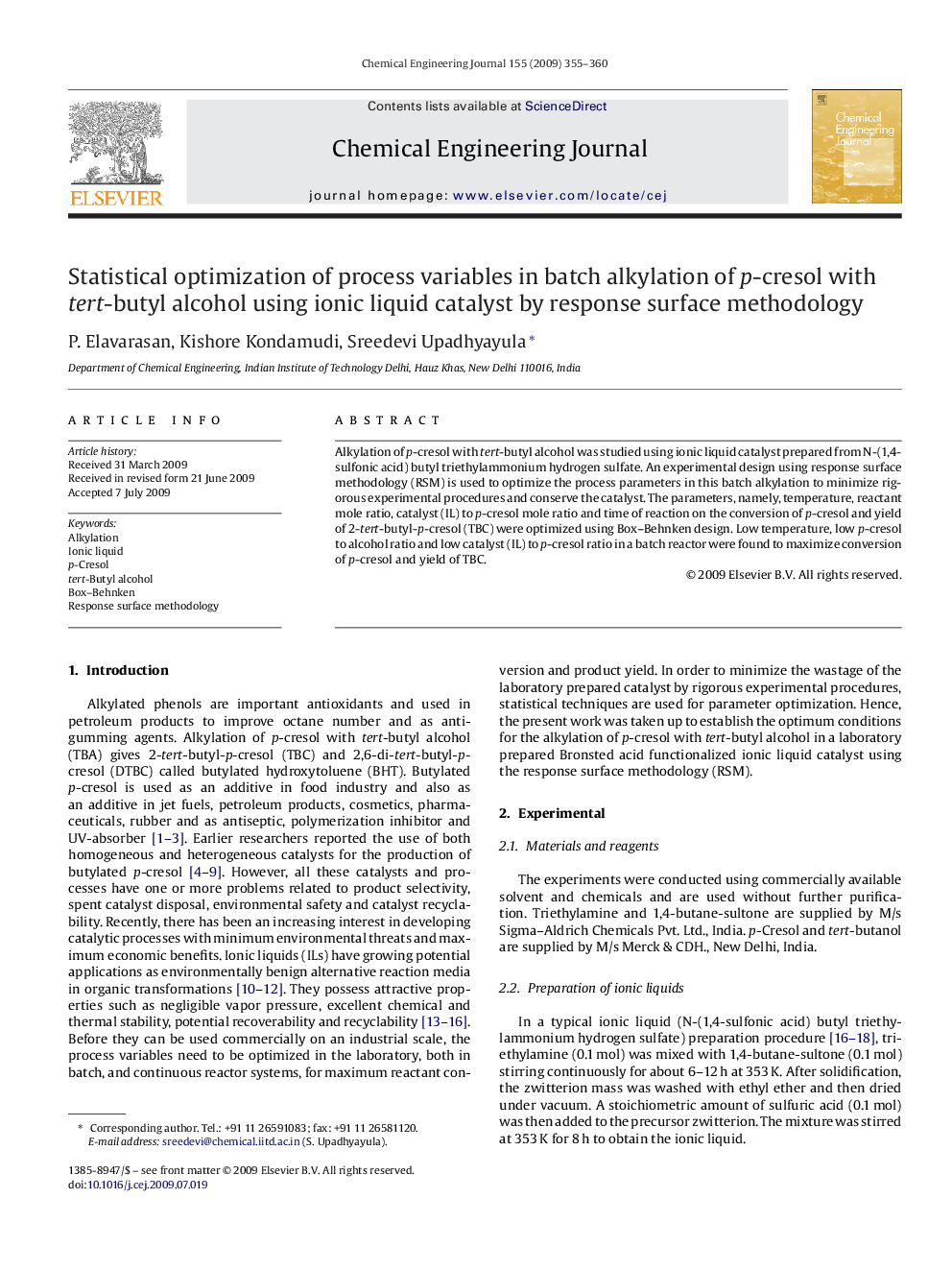| Article ID | Journal | Published Year | Pages | File Type |
|---|---|---|---|---|
| 153345 | Chemical Engineering Journal | 2009 | 6 Pages |
Alkylation of p-cresol with tert-butyl alcohol was studied using ionic liquid catalyst prepared from N-(1,4-sulfonic acid) butyl triethylammonium hydrogen sulfate. An experimental design using response surface methodology (RSM) is used to optimize the process parameters in this batch alkylation to minimize rigorous experimental procedures and conserve the catalyst. The parameters, namely, temperature, reactant mole ratio, catalyst (IL) to p-cresol mole ratio and time of reaction on the conversion of p-cresol and yield of 2-tert-butyl-p-cresol (TBC) were optimized using Box–Behnken design. Low temperature, low p-cresol to alcohol ratio and low catalyst (IL) to p-cresol ratio in a batch reactor were found to maximize conversion of p-cresol and yield of TBC.
